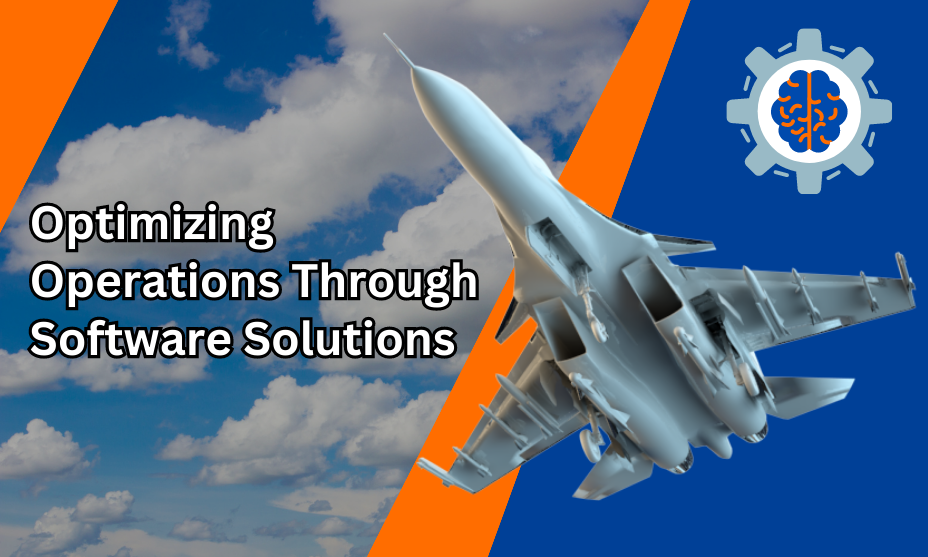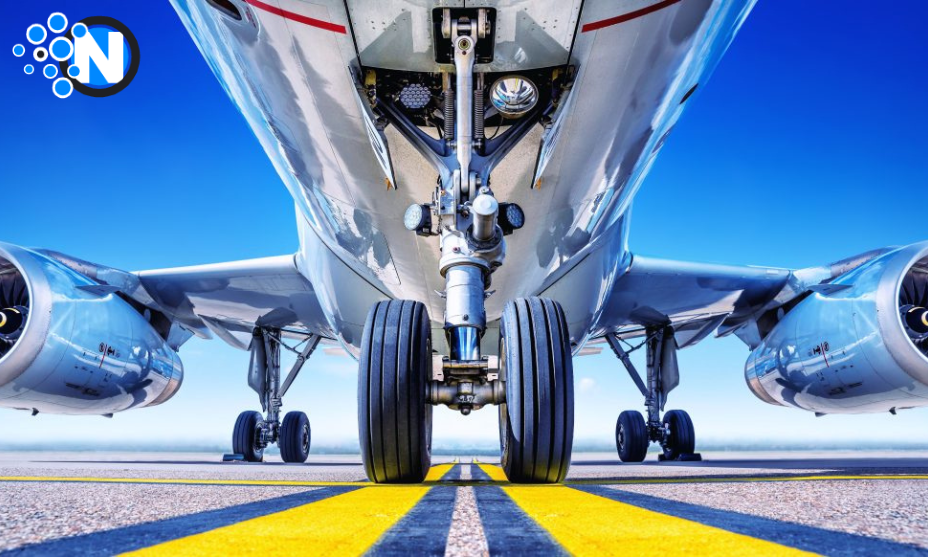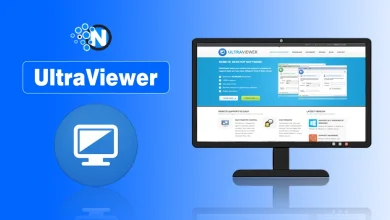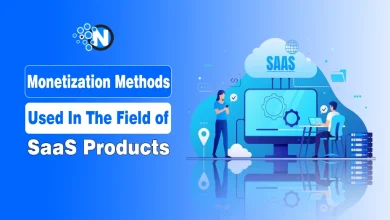How Aviation Software Enhances Safety & Efficiency
As we enter mid-year 2023, the aviation industry confronts various difficulties that demand attention. These involve significant concerns like staff scarcities and an impending economic downturn with sanctions’ impact looming overhead — businesses look towards innovative solutions targeting safety efficiency while minimizing expenditure where possible. The utilization of aviation software is one such solution initiative gaining traction in response to these impending threats posed upon their operations. Our article aims to elaborate on how this software plays a pivotal role by positively tackling said hindrances head-on. Bespoke software solutions combine expertise & facilitate improvements in operations optimization, enhancing decision-making and leading to heightened security awareness while reducing financial constraints throughout vital areas of business engagement aspects, including flight scheduling, maintenance planning, customer service cargo management & airport operation practices.
Understanding The Role of Aviation Technology
To address the particular demands of the aviation sector, specialized tech solutions such as airline software exist. It comprises various digital apps, systems, and tools to enhance overall performance by streamlining operations and marketing data-driven decision-making. One of its main advantages is its ability to effectively improve crucial tasks in this industry – specifically by providing sophisticated scheduling modules that optimize flight plans while ensuring efficient resource allocation and reducing disruptions leading to increased customer satisfaction.
Additionally, this technology allows for automatic maintenance tracking – including predictive maintenance capabilities that ensure optimal aircraft safety resulting in greater fleet reliability. Alongside these benefits is seamless customer interaction through features like online ticketing platforms & personalized services with efficient communication channels making information accessible conveniently for both users & operators alike.
Prioritizing Safety Measures in the Aviation Industry
When it comes to bolstering the safety of travelers in aviation, the use of specialized software is paramount. Aviation-specific programs harmoniously integrate with real-time data from various sources to provide comprehensive risk assessment and management tools that empower operators and air traffic controllers with informed decisions prioritizing travelers’ security. Cutting-edge flight planning capabilities consider weather conditions, airspace restrictions, and aircraft performance metrics, resulting in optimized routes minimizing exposure to possible risks. Incorporating reliable safety management protocols within the software facilitates timely incident reporting, correct investigation procedures & trend analysis to account for corrective measures, and implementing possibilities before issues shape into major problems.
Optimizing Operations Through Software Solutions

Custom software is highly regarded for its ability to streamline operations within the industry, maximizing efficiency significantly. Automating manual tasks eliminates redundant processes while optimizing resource allocation providing valuable breathing space for aviation professionals who require it most. Tailored software for airlines contributes extensively, facilitating improved coordination by simplifying planning efforts while allocating resources and minimizing conflicts and disruptions found during flight scheduling routines, for example, leading to cost-efficient optimizations. Cargo management improves through automated inventory assistance after optimizing routing, facilitating excellent tracking while offering enhanced documentation quality and minimizing logistical costs.
Airport operations encounter similar benefits when automating key activities such as gate assignments resource allocation alongside passenger flow; this leads to fewer congestion bottlenecks resulting from increased utilization of available resources while enhancing communication through streamlined decision-making that delivers quicker outcomes more efficiently among stakeholders hence promoting greater efficiencies across various functions. Expanded integration with other systems towards optimized decision-making and efficient data exchange ensures optimum performance, enabling reduced downtime and minimizing resultant operating expenses.
Case Study: Transforming Pilot Training with Custom Software
A compelling story about the power of flight operations software is developing a custom online pilot training app that democratizes flight education access for more diverse learners without breaking their bank accounts. Traditionally, becoming a certified pilot was only open to elite students due to their financial means when paying steep tuition fees solely for hands-on learning activities or extended periods away from work/family commitments for classroom education.
However, harnessing advanced aviation technologies provides innovative solutions that increase accessibility levels without sacrificing skills development quality and professional competencies standards expected of licensed pilots-worth noting here not compromising anything in our mission for inclusivity.
The custom online pilot training application combines interactive learning materials containing real-life scenarios that simulate actual flight experiences complemented by real-time assessments of students’ progress based on their responses or feedback on each module instantly evaluated by mentors or tutors remotely ready when you are! Such personalized features create adaptive modules tailored to individual needs and remote instructor availability – enhancing flexibility inaccessible before or ever thought possible!
Thus far-reaching benefits extend beyond monetary gains or settling inequalities among various social groups but also improve efficiency throughout the curriculum and effectiveness of pilot training programs overall. This application demonstrates how custom software solutions can transform traditional norms restricting accessibility and inclusivity within the industry to create transformative learning experiences powered by technology.
Exploring The Future of Software in Air Travel
Custom software for commercial flying is constantly transforming itself, with new exciting possibilities emerging daily. The integration of artificial intelligence (AI) along with machine learning (ML) algorithms within such a system holds tremendous potential for optimizing maintenance operations as well as improving flight operations by analyzing large volumes of sensor-generated data, thereby detecting patterns that help predict maintenance needs leading towards reduced downtime and improving aircraft reliability.
IoT devices within such a framework enhance efficiency while making it safer for all concerned parties. It enables perceptive tracking, including critical components allowing alerts in real-time round performance with a quick transmission, thus enabling proactive maintenance and increasing safety measures manifold.
This vast amount of monitored information, coupled with advanced techniques in extraction through various forms, makes available lucrative insights that are extremely beneficial to companies associated with the industry helping optimize processes by identifying trends, thus making informed decisions based on facts alone, avoiding any possible risk factors completely.
Blockchain emerges as the latest layer in enhancing data security. It provides a platform using exceptional mechanisms, thus simplifying record-keeping and enabling seamless transactions across multiple stakeholders, paving the way for further advancements in software systems for aircraft.
Conclusion
Ensuring greater safety levels within air travel while promoting efficiency in airline operations today depends greatly on aviation software adoption across all airline providers worldwide. Organizations can benefit by making data-driven decisions by implementing cutting-edge solutions tailored to them while improving operational processes such as cargo management or airport operations, which can be optimized through bespoke custom-made apps that streamline these functions.
Furthermore, integrating advanced risk assessment & management utilities with comprehensive flight-planning capabilities puts every aspect under control. At the same time, better communication & collaboration among different sectors leads to enhanced monitoring toolkits & surveillance levels.
Novel applications, including online pilot training and customization, help address income disparity issues while revolutionizing practices related to pilot training. With continued improvements expected from artificial intelligence (AI) & machine learning (ML), the potential gains could impact fuel consumption rates due to more optimized routes, reducing air traffic congestion & secondary fuel consumption by airplanes. As the aviation industry continues to embrace digital transformation tailored around big data and analytics, developers & experts must collaborate globally with airline providers forging partnerships toward a more efficient & safer Aviation system.





